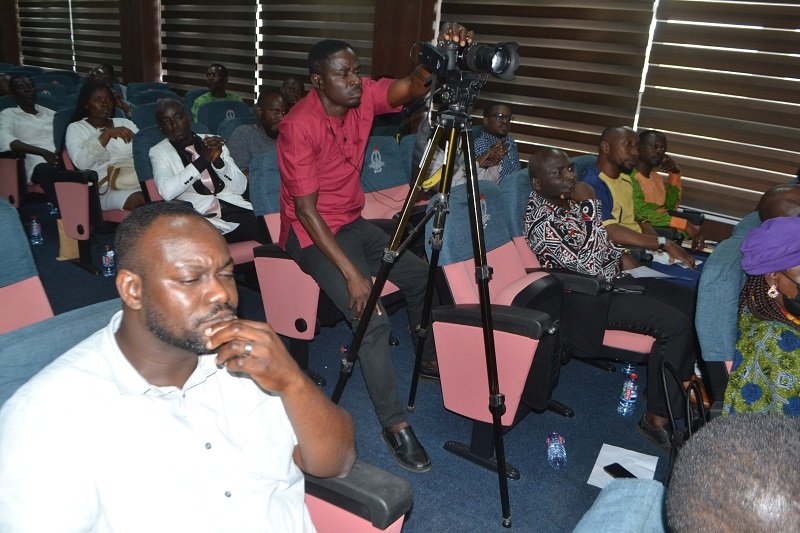Artists and cultural professionals have been urged to use their artistic works to develop concepts that would promote environmental sustainability in the fight against illegal mining, popularly known as galamsey.
The Executive Director of the National Commission on Culture (NCC), Nana Otuo Owoahene Acheampong,noted that the failure by artists and cultural professionals to develop such concepts other than entertainment was a challenge.

Hesaid this development made the media and public perceivedartists and cultural professionals as entertainers rather than advocates of environmental sustainability.
Nana Acheampong was speaking at an evaluation and validation meeting on the United Nations Education, Scientific and Cultural Organisation (UNESCO)-Aschbergprogramme, for emerging artists and cultural professionals.
The event was purposed to build the capacities of 400 emerging artists and cultural professionals across four separate zones, namely, Tamale, Kumasi, Central, and Greater Accra zones.
It was on the theme: ‘Empowering artists through policy formulation and robust legal framework. An engagement with artists on inputs on cultural policy, copyright, and other relevant laws.’
“I think artists are the most powerful agent at this point to be able to help address the galamsey menace. If we need any voice, the loudest of the voices is the artist. So I am looking at what they can do in terms of using their creativity prowess to be able to address this issue of galamsey,” Nana Acheampongstressed.
He emphasised the readiness of the NCC to protect and back artists and cultural professionals, who responsibly advocated against galamsey through their artistic works.
“It will be very shameful for any artist to be maltreated and have his or her human right abused for expressing his or her creativity in addressing societal issues,”Nana Acheampongnoted.
Moreover, he said it was important for the Commission to mobilise resources internally to build the capacity of artists and cultural professionals as it received 8,506applications, which surpassed the 400 participants the UNESCO-Aschbergprogramme was to cater for.
The Cultural Officer of NCC, Mr Patrick BorteyAlabi, added that the UNESCO- Aschberg programme was in four different phases, which included stakeholder engagement, selection of participants, organisation of training conference, and the evaluation and validation meeting.
He said, “The project is being delayeddue to delay in finalising ofproject contract and the releasing of funds and the dispensation of two training modules in one day instead of two days.”
The National Professional Officer of UNESCO, Mr Carl Ampah, stated that his outfit was pleased to partner with the NCC and also provide funding for the implementation of the Aschberg programme, which addresses issues such as artistic freedom and mobility.
He was hopeful that artists and cultural professionals, after the completion of the evaluation and validation meetingwould becomethe nation’s conscience.
BY BENJAMIN ARCTON-TETTEY


